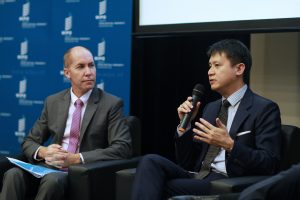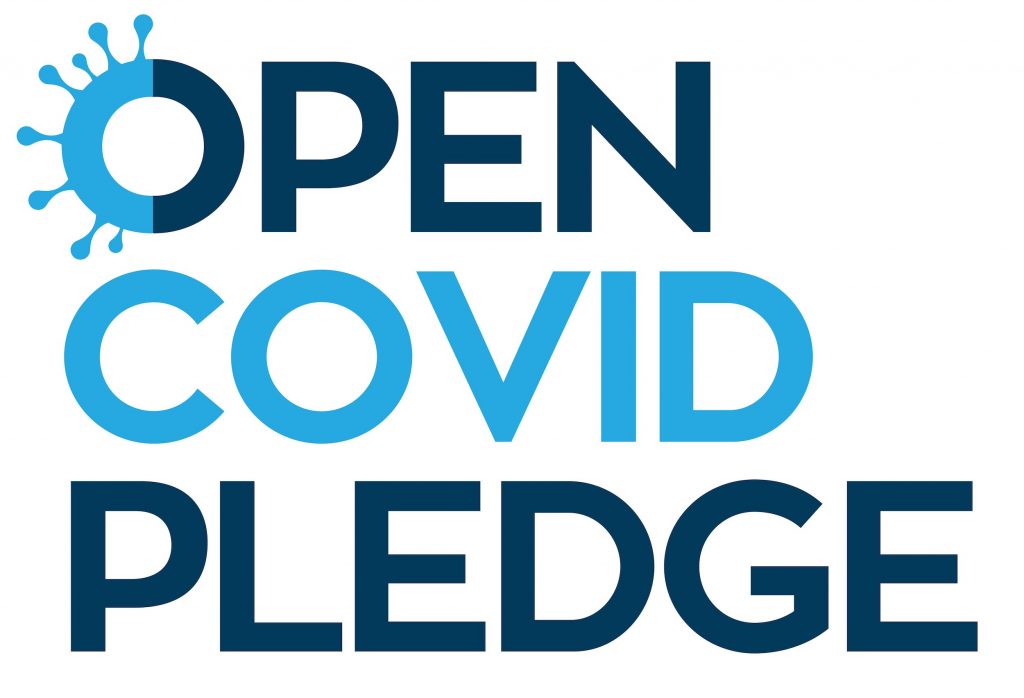Does WIPO’s New Leadership Have the Vision to Shake Up Global Copyright Policy-Making?
jeudi 16 avril 2020 à 17:32New beginnings at WIPO
On March 4, Daren Tang was nominated director general of the World Intellectual Property Organization (WIPO), the United Nations agency dealing with intellectual property matters. Tang is currently the chief executive of the Intellectual Property Office of Singapore (IPOS) and his six-year term as top WIPO official will start on October 1, 2020. He will replace Francis Gurry, who has led the organization since 2008.

This change in leadership opens the way for bold new perspectives and a sharpened focus on much needed global copyright policy reform that has been urged for decades. With Tang at the helm, WIPO and its member states will have a unique opportunity to recalibrate an outdated, unbalanced copyright system, embrace on equal terms the views and opinions of civil society organizations, and create a new order where rules are fit for the digital environment in which we all learn, create, and share.
In this post, we outline what needs to be done to drive copyright policy in the right direction, with a special focus on the three main substantive issues under discussion at WIPO: broadcasting rights, limitations and exceptions, and copyright and the digital environment.
Time for sweeping changes in the SCCR
From 2018 to 2019, Tang served as chair of WIPO’s Standing Committee on Copyright and Related Rights (SCCR), the international forum where discussions on copyright and related rights take place. As a permanent observer to the SCCR, Creative Commons (CC) actively contributes to shaping global copyright policy with a view to upholding strong user rights and a robust and thriving public domain within a balanced ecosystem conducive to creativity, collaboration, and cultural interaction. Here are some of the initiatives pending before the SCCR where CC and other civil society organizations have taken a stance in support of the modernization of copyright.
- Broadcasting
Discussions over a potential new treaty for the protection of broadcasting organizations have been taking place for more than a decade within the SCCR. CC has time and again made the case that such a treaty is clearly not needed. Current legal frameworks provide more than enough enforcement mechanisms and remedies for so-called “signal piracy.” Promoting and delivering content via a broadcast signal should not convey rights to control access and use of the content itself. In addition, the creation of new rights atop copyright to “protect” a broadcast signal would severely compromise users’ right to make certain uses of the underlying creative work, either thanks to exceptions, limitations or via public licenses, such as CC Licenses or even to material in the public domain. At a minimum, broad exceptions and limitations should append to any new rights to allow wide use and reuse of works by the public so that underlying uses of works by the public that currently exist are not blocked by any new rights granted. There is significant risk that granting this new broadcasting right will limit access to information and culture. Instead of keeping this item on the agenda where, clearly, there is no outcome in sight, WIPO should halt the proceedings of the broadcast treaty.
- Exceptions and limitations
Exceptions and limitations (E&L) are also a long-standing item on the SCCR agenda that need a complete reshuffle. While some interest groups proselytize licensing over E&L, licensing simply cannot uphold fundamental rights such as the right to information, the right to access to culture and freedom of expression, as noted in CC’s latest submission to the SCCR. CC licenses are an excellent way to share culture, information and knowledge—our licenses are the international standard for open licensing and the broadest, best understood and recognizable way to signal an intention to share. However, licensing (especially collective licensing) falls short of addressing the problems that libraries, museums, archives, educational and research institutions, as well as persons with disabilities, face on a daily basis.
That’s why we fully support a treaty on educational and research activities and for international copyright law to enshrine clear, mandatory, and flexible E&L for educational uses both offline and online, such as teaching and learning. We are also in favor of E&L for cultural heritage institutions, including for the preservation of cultural heritage by galleries, libraries, archives and museums (GLAMs).
- Copyright and the digital environment
New technologies and the internet have forced many countries to reform their copyright laws. Despite those efforts, we are still faced with a global copyright system that fails to keep up with digital advancements. Old rules that were designed for the analog world cannot be tweaked slightly to address the new realities of the digital world. What we need is a complete redesign of the legal and policy architecture supporting the creation, sharing and reuse of creative works. This new copyright architecture needs to be simple, efficient, targeted, effective, and realistic. WIPO was challenged more than ten years ago to serve as a leader in reforming copyright, and to date has done extremely little by our estimation. For copyright to be fit for the digital environment, where millions of copies of copyright works can circulate within seconds of their publication and be used by millions of users, policy action is urgently needed. Copyright needs to embrace and bolster the novel business models and interaction patterns emerging around creativity and online participation in culture. On that point, we champion the fundamental recognition that digital reproductions of works in the public domain should stay in the public domain.
With the support of an extensive network of experts from all over the world, including copyright reform experts, CC is driving policy change to bring copyright in line with the realities of creation and online dissemination of creative works. This copyright upheaval is necessary to tear down the barriers that copyright erects around creative content and allow everyone to freely enjoy the benefits of access to culture, information, and knowledge.
Fairness, transparency, and neutrality
We expect WIPO to facilitate a healthy and meaningful debate in the SCCR among all stakeholders, including those representing the public interest. This also holds true for all normative activities at WIPO, including those taking place in the Committee on Development and Intellectual Property (CDIP), which plays a vital role in making sure the voices of developing countries are taken into account in discussions shaping global copyright law. Our expectations of fairness, transparency, and neutrality extend to WIPO’s capacity-building and technical assistance activities as well.
We urge Tang and his senior management team to rise to the challenge of creating a copyright framework befitting 21st century technologies and sharing customs, including providing leadership in the global policy-making arena, with the goal of achieving a balanced and modern copyright system. To this end, we stand ready to break new ground and catapult copyright into the future, because the future is already here.
The post Does WIPO’s New Leadership Have the Vision to Shake Up Global Copyright Policy-Making? appeared first on Creative Commons.


 In order to avoid intellectual property (IP) issues, and make it clear the results of these collaborations are open source, Creative Commons is urging individuals, companies, and research institutions to clearly utilize an open-source license or sign the
In order to avoid intellectual property (IP) issues, and make it clear the results of these collaborations are open source, Creative Commons is urging individuals, companies, and research institutions to clearly utilize an open-source license or sign the 




